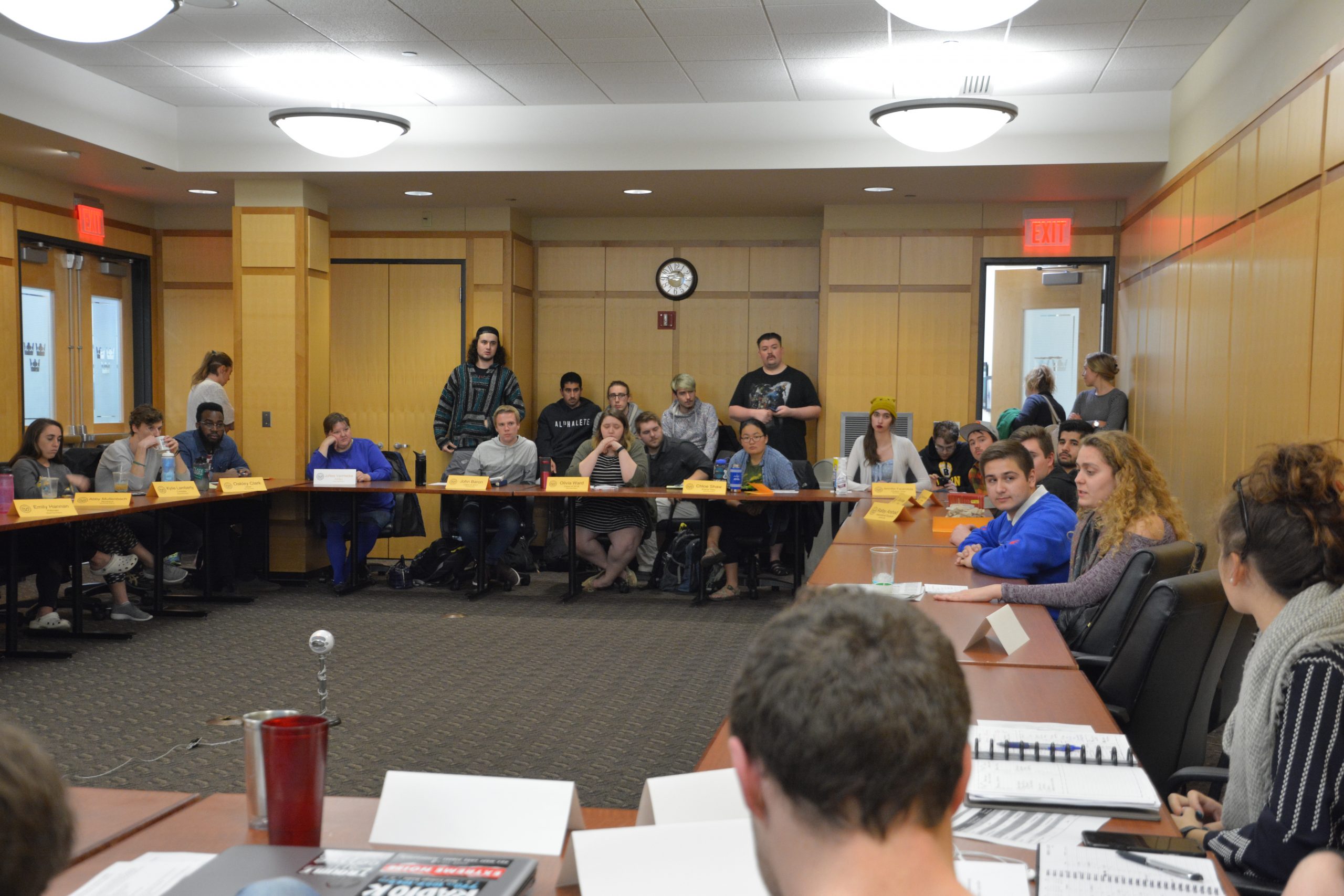Last Monday, Gustavus Student Senate held an extended meeting to address student concerns regarding the Feb. 27 Co-Presidential elections. After a highly contested campaign, and an extremely close result marred by ethics violations and errors during the election process, some community members and senators questioned the legitimacy of the results.
The ethical and rule violations which occurred during the election which may have affected the result, included the failure of ballots to include the last names of candidates as required by the Senate Constitution during the period from 9:00 a.m. to 10:42 a.m., the failure of ballots to include a write-in option as required by the Senate Constitution, and the closure of the polling station outside the cafeteria during a very popular time to vote (12:00 p.m. to 12:30 p.m.). Accordingly, the ethics committee recommended the censure of both Technology Director Peter Schwartz and Ombudsperson Joe Robbins for their failure to follow Senate rules, as well as an informal reprimand for defeated Co-President candidate Oakley Clark for sitting in on an elections committee meeting while a candidate. After extensive discussion, the proposed reprimands were approved by the Senate.
During the previous week’s Senate meeting, with the election still in progress and the closeness of the results unknown to all except Schwartz and Robbins, senators had been informed of the mishaps but decided not to halt and nullify the election. However, after Senate Speaker Emmet Haberman and Parliamentarian Joe Cella sent out an email to the entire student body informing them of the ethics violations and proposed reprimands, more than a half dozen students came to express their concern with the legitimacy of the outcome.
“This is nothing against the Co-President elects,” Sophomore Nathan Dull said. “I just think that, given the email that was sent out to the entire Gustavus community…[and] that there was time during a very busy time outside the caf, and especially given the small margin of victory, that if not for a revote there should at least be an additional period opened up for those who have not voted.”
Senior and former Senator Gabe Grosshuesch was even more unstinting in his criticism of the legitimacy of the election and the conduct of those who ran it.
“As someone who served on Senate for two and a half years, I find it greatly concerning that you have shied away from your constitution and bylaws,” Grosshuesch said. “I personally didn’t vote, because I was expecting you to recall the election, which I was clearly mistaken… I would like for you to impeach some of your officers for breaking so many rules.”
In addition to these violations, following the election Ombudsperson Robbins disclosed the margin of the victory without consulting the ethics committee and against the advice of Schwartz.
This decision was determined by the ethics committee to have violated the Election Day Procedure (Section III, Line 10) of the Senate Constitution, which stipulates that only the Technology Director and election committee members may view vote counts. Several senators proposed the impeachment of Ombudsperson Robbins, but a divided Senate failed to reach the 2/3rds threshold of impeachment.
After reprimanding Robbins, Schwartz, and Clark, the Senate considered whether the election results should be fully upheld, or whether a intermediary approach should be adopted. After several hours of debate, during which numerous proposals were voted down, senators decided to charge the elections committee with developing proposals for next week’s meeting.
If the Senate decides that its previous decision to uphold the election on Feb. 27 was mistaken and the bylaw infractions may have shifted the result, then “everything is up in the air,” Parliamentarian Joe Cella said. “The solution that the Ethics Committee has proposed of publicizing the exact mistakes and violations that happened then polling the student body for a re-election seems to me the most viable way to move forward.”
